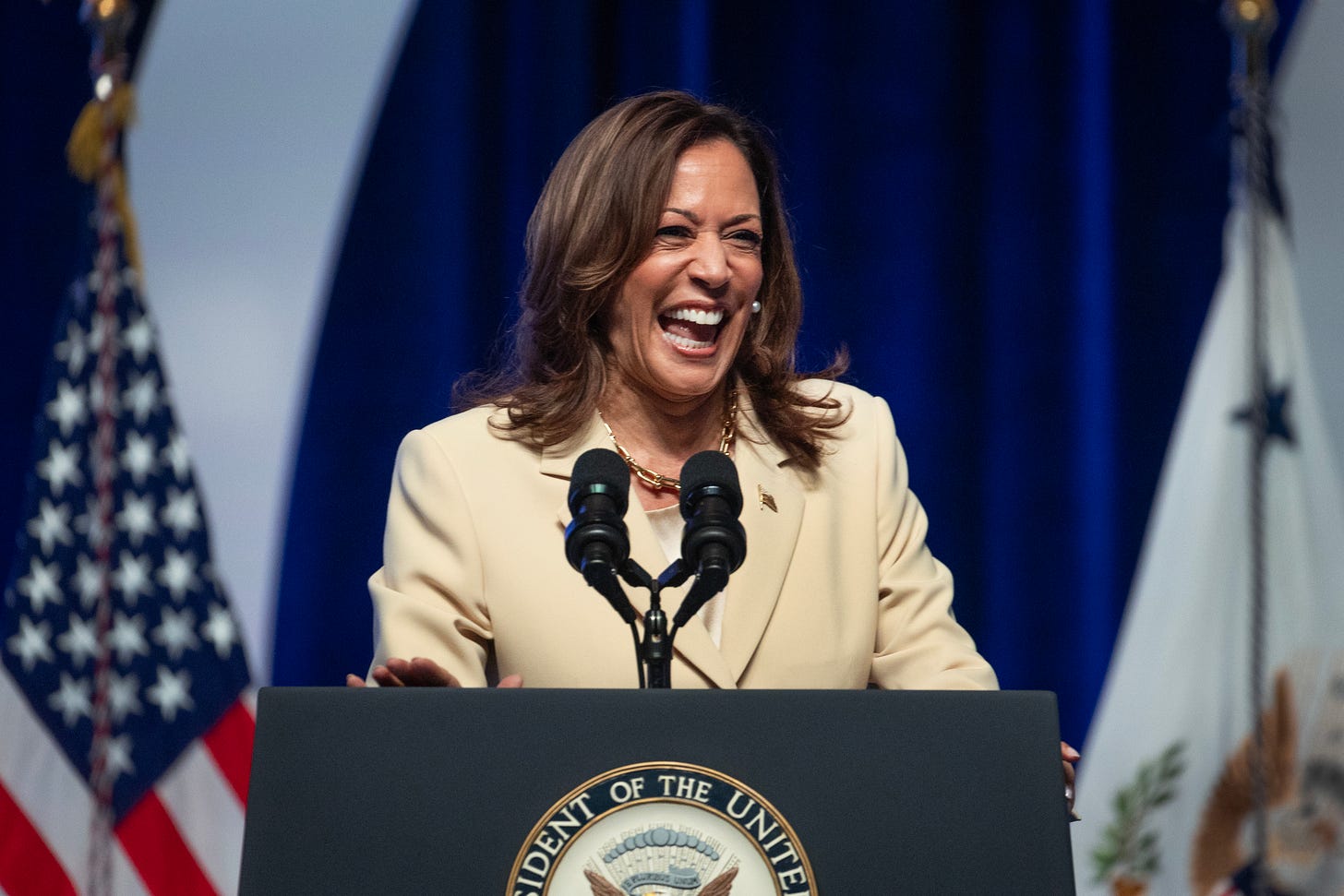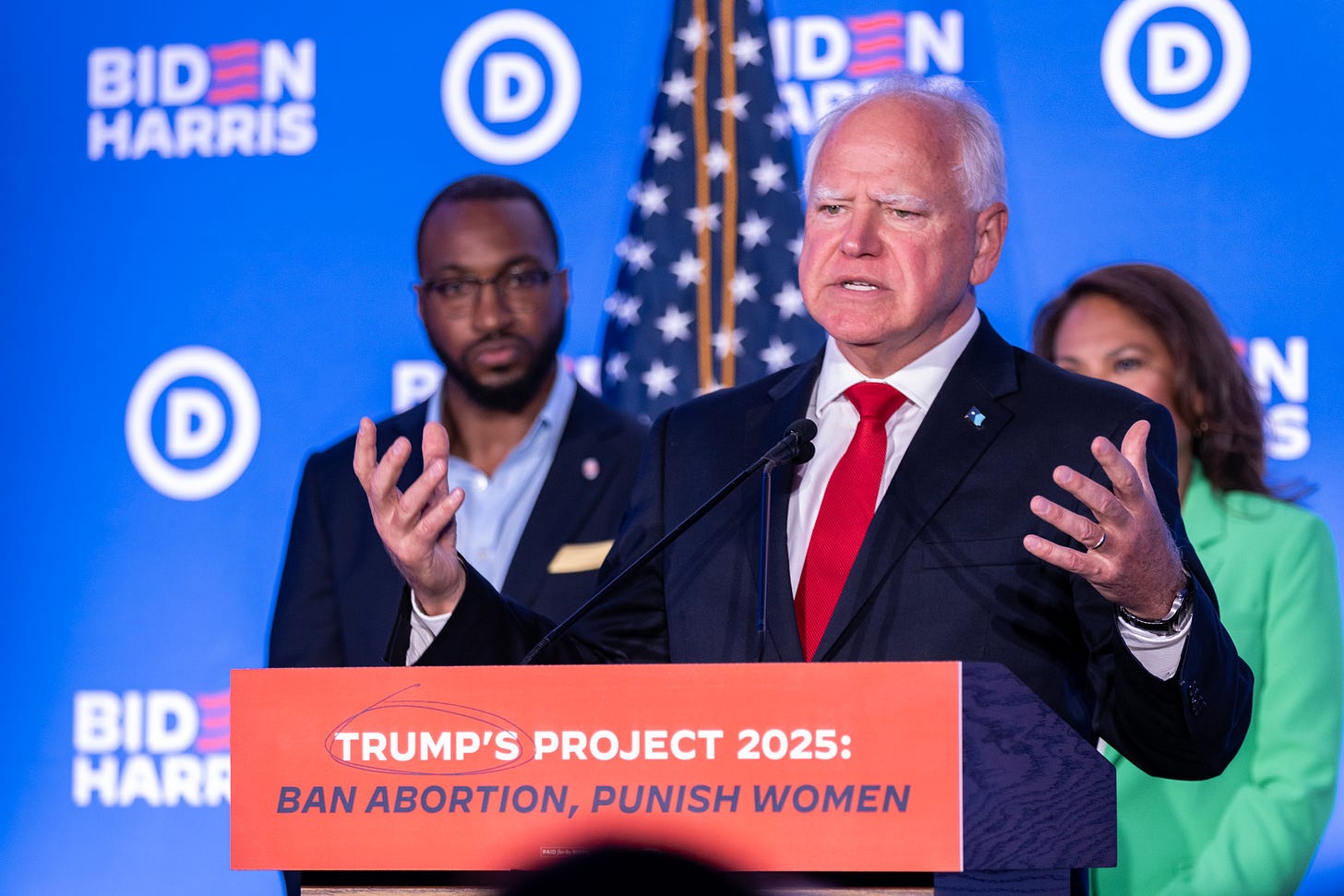The media fails to take Trump at his word. Again.
Three theories about why journalists don't sound the alarm loud and clear about his authoritarian plans
There was a whole (faintly ridiculous) debate in media and politics circles during the 2016 campaign about whether to take Donald Trump “literally or seriously.”
Let’s not reprise it here except to quote poet Maya Angelou: “When someone shows you who they are, believe them the first time.”
I fervently wish that the news media would take Trump seriously when it comes to his apparent scorn for voting, for fair elections and for democratic norms.
This past Friday, Trump urged Christian voters in West Palm Beach, Florida to vote, but told them it would be the last time they’d need to bother.
His exact words:
“You won’t have to do it anymore, four years, it will be fixed. It will be fine. You don’t have to vote anymore. In four years, you won’t have to vote again.”

The New York Times, among many news organizations, was slow to focus on this, though they eventually added these startling remarks to their original coverage of the speech. Later, they published a separate story focusing on the “it will be fixed” comments — perhaps responding to negative attention on social media, from scholars, pundits and ordinary citizens. (“This is not subtle Christian Nationalism, he’s talking about ending our democracy and installing a Christian nation,” posted civil rights attorney Andrew Seidel.)
But this incident was not a one-off, by any means. A few days earlier, on Fox & Friends, Trump went so far as to tell the faithful not to bother to vote even now. “My instruction — we don’t need the votes. We have so many votes.”
And a week ago, at another rally, Trump put it this way: “In four years, don’t vote. I don’t care. But we’ll have it all straightened out, so it’ll be much different.”
I was glad to see that the Guardian, where I write a weekly column, was leading their U.S. site with a story on the Friday remarks. But mostly, this story was underplayed. (My most recent Guardian column is about the sexism and racism in early media coverage of the Harris campaign.)
Ruth Ben-Ghiat, the scholar of authoritarian movements whom I quote often because she is such a clear voice on this topic, warned:
“Media: This should be *the* A1 story. I have studied dictatorship for years and this is it — ‘you won’t have to vote anymore.’
“Trump will never leave office if he wins in November.” (Ruth writes the excellent Lucid newsletter here on Substack.)
Why doesn’t the media sound the alarm loud and clear? I have three theories:
Trump is often indirect when he talks about this. Like a mob boss, he doesn’t say things in a clearly damning way; he walks right up to the line, and then issues a coded, ambiguous message. You might say, hearing this, “well, he doesn’t really mean there won’t be another election, he’s just talking about what a great job he’ll do in office.” But mob bosses get their point across, and — if we’re really listening — so does Trump.
He repeats himself from speech to speech, and from rally to rally, so his comments — no matter how outrageous — don’t register as “news,” in the traditional sense. The media becomes numb to what we’re hearing. Also, these remarks are mixed into the Trumpian word salad about sharks, electric shocks, low water pressure, and Hannibal Lecter. How do you differentiate? (Answer: It is always good to be pay attention to a candidate’s desire to diminish democratic foundations, such as voting.)
False equivalence, aka the “both-sides” reporting that seeks to equalize the unequal, all in the name of supposed fairness. If the media writes a story saying “Trump is a clear threat to democracy and you can hear it in these words,” they feel the need to write an equally critical story about the opposing candidate. But the opposing candidate — whether President Biden until last weekend or Vice President Harris now — doesn’t do anything nearly that outrageous. (You might recall the vast overemphasis on Hillary Clinton’s email practices.) Which is why we’re getting stories about Harris’s laugh, apparently, like this recent one in the Times: “Kamala Harris’s Laugh Is a Campaign Issue. Our Comedy Critic Weighs in.” All of this will get much worse as the campaign continues.
Since we are focused in this newsletter on the consequences of the coming election — in NYU professor Jay Rosen’s words, “not the odds, but the stakes" — I urge news decision-makers to take Trump’s authoritarian desires very seriously. When they do so, it matters, as we’ve seen with more coverage of Project 2025, the right-wing blueprint for a second Trump term. People are beginning to understand how diabolical it is.
Thanks very much for subscribing, and a warm welcome to new subscribers, whether paid or unpaid. I deeply appreciate your support and involvement, and am reading your views here with great interest.
Please tell me in the comments how you are feeling about the presidential election now that President Biden has passed the baton to Vice President Kamala Harris. And

more specifically, tell me who you like best for her running mate.
Impressive as Arizona senator Mark Kelly is, and acknowledging that he may be the favorite, I must say that I’m taken with the common-sense Midwestern smarts — and humor — of Minnesota governor Tim Walz. I was amused by one observer’s quip on Twitter/X: “In less than 6 days, I went from not knowing who Tim Walz is, to deep down believing that if he doesn’t get the VP nod, I will storm the capitol.”
One final note: We’re into the last 100 days before the election. I hope you’ll continue to join me here as we focus not on the odds, but the stakes.






My favorite thing about Tim Walz is that he’s unapologetic about a government for all the people. Of course we build roads and bridges! Of course we offer a good education to all kids, and give them breakfast and lunch so they’re ready to learn! For too long, Democrats have been playing defense in the face of Reagan-istic attacks on government as the enemy.
I find it hard to believe that the news media lacks insight - these are journalists! Someone/committee is making these editorial decisions. With all this handwringing about the how the media covers Trump versus anyone else, you would think there would be some soul-searching by the media itself, and not just its commentators, an opinion piece, or letters to the editor. To me, this financial conflict of interest is front page news. But who will investigate this? Is the media's power absolute? That is a lot of power without any guardrails. I worry about the October surprise that the media will decide is newsworthy and beat to death - still have PTSD from Hilary's emails.